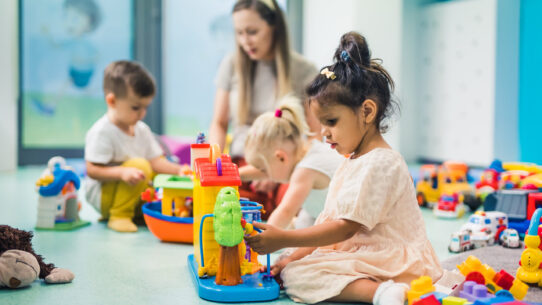READ OUR LIST OF WHAT PASSED AND WHAT DIDN’T

Updated: June 9, 2017
After 140 days of ups and downs, early mornings and late nights, and passionate debates, the 2017 Texas legislative session ends today. We’ll publish a full review of the session after June 18th (the last day for the Governor to veto bills) and hold a briefing on June 27th to discuss the session. But today we offer you a quick look back on the session along with a list of which key children’s bills passed and which did not.
When the legislative session began in January, there were high expectations for what the Legislature would accomplish for Texas kids.
Some issues were high on the Legislature’s agenda after public attention zeroed in on the consequences of state leaders’ neglect and past policy decisions. Those issues included strengthening CPS to keep kids safe, lifting the cap on special education enrollment, addressing the state’s maternal mortality crisis, and reversing the state cuts to therapies for kids with disabilities.
Other issues had picked up momentum before the session as state leaders and advocates declared them priorities and then put their shoulders into the job. Those included mental health, pre-k, and “Raise the Age” juvenile justice reform.
Looking back on the session, there were some important victories for children.
On the CPS front, the Legislature deserves a lot of credit for providing a significant funding boost and passing important reforms. Additional funding to hire CPS caseworkers and raise their pay will reduce turnover and ensure more children are checked on in a timely fashion. The state’s increased investment in foster care reimbursement rates will ensure more homes and appropriate services are available. SB 11 took helpful steps by expanding community-based foster care in a measured way, improving oversight over foster homes, and more. Other bills strengthened prevention services, boosted support for kinship providers who take in young relatives, and improved other facets of the foster care system.
It’s important to note that there will be more work to do on CPS, especially once the federal courts issue their final order after years of reviewing evidence in the lawsuit against the state’s foster care system. We will also need to be vigilant against some of the emerging misdiagnoses of the state’s CPS challenges, such as the notion that the needs of providers should trump the needs of kids or the view that making it harder to remove children from dangerous homes is a solution to the shortage of foster care placements. We still have a long way to go to ensure that fewer children enter the foster care system and that those who do enter the system have safe and stable homes where they can thrive.
Beyond CPS, you may have seen some of the headlines about the Legislature passing other important bills to improve access to postpartum depression screenings, end discretionary suspensions for students in pre-k through second grade, and lift the special education enrollment cap.
The Legislature also passed numerous bills that will probably never be in the headlines but make a real difference in kids’ lives. Examples include bills to strengthen Community Resource Coordination Group (CRCG) services for children with complex mental health challenges; improve adolescents’ access to mental health screenings; improve coordination when CPS and the juvenile justice system are working with the same youth; ensure fewer young people are held back by juvenile records; encourage trauma-informed practices in schools; and allow teachers to focus their training on the unique needs of students in the early grades.
In many cases, legislators laid the groundwork for future efforts. They passed a bill to divert some 10- and 11-year-olds from the juvenile justice system, a first step towards better policies for addressing the way the state handles 10- to 13-year-olds in the justice system. While legislators failed to pass the bill to improve nutrition standards in child care, the bill made it to the House floor and restarted a long-neglected discussion about effective ways to address the state’s obesity crisis.
State leaders should also plan to follow up on the initial steps this Legislature took to study the state’s maternal mortality crisis and develop new policy recommendations on maternal health. The final budget included a rider for the state to study trends, rates, and disparities in pregnancy-related deaths and to seek federal funding to address postpartum depression, two of the key provisions of SB 1929. The full version of SB 1929 — which included language from HB 2403 to address the disproportionate rate of pregnancy-related deaths among Black moms in Texas — was blocked in the end-of-session standoff over legislation regulating which bathrooms transgender students are allowed to use. It was the second time this session that lawmakers blocked HB 2403 as part of separate legislative conflicts.
Despite these gains, we unfortunately have to conclude that the Legislature fell far short of Texans’ expectations.
That sentiment extends beyond the scope of the children’s issues on which we’re focused. Organizations that focus on school finance, immigrant families, LGBTQ rights, and other issues have expressed disappointment – and sometimes outrage – with the way the Legislature’s decisions this session will affect Texas children.
One of the greatest disappointments among our policy priorities was that the Legislature largely failed to reverse the therapy cuts for children with disabilities. For two years, parents of kids with speech delays, autism and others disabilities pleaded with the Legislature to reverse the 2015 cut that has led to reduced access to needed therapies. The House pushed to undo most of the cuts, but ultimately accepted the Senate’s insistence on providing only a 25 percent restoration of funding.
The Legislature also cut appropriations for pre-k, eliminating the funding for the high-quality grant program established in 2015. Instead, legislators passed a budget rider simply directing all school districts to comply with the grant program’s quality standards using existing resources. We appreciate the recognition of the need for high standards, but the enforceability of the rider is in doubt, and we know that the best way to drive improvements is through high standards coupled with additional funding to support additional district investments in quality teachers, full-day options, reduced class size, or other improvements.
Another priority this session was passing “Raise the Age” legislation to make the juvenile justice system, rather than the adult system, the default for 17-year-olds who get in trouble. After passing the House on a late-session amendment in 2015, we were pleased to see that the House passed the bill early this session with passionate, vocal support from legislators across the political spectrum. After the strong showing in the House, it was disappointing that the Senate did not even hold a hearing on the bill.
While the Legislature took important steps to address mental health, it made less progress on policies focusing on children’s mental health. For example, an omnibus student mental health bill was placed on the House calendar when it was too late to pass and a bill to provide family peer supports to parents raising children with serious emotional disturbance was approved by a House committee but did not get set for a vote by the full House.
We were also concerned to see a few harmful bills pass. One will steer more young foster children to group “cottage homes” rather foster families, while another gives priority to the religious views of faith-based foster care providers over the needs of children.
One of the reasons the Legislature failed to accomplish more for children was because of its approach to the budget. This was considered a “tight budget” session, in large part because of recent state tax cuts and other fiscal decisions. Yet the Legislature left a staggering $11 billion unspent in the Rainy Day Fund, using just $1 billion from the Fund while underfunding many priorities for kids. It’s also worth noting that the Legislature would have created a full-blown budget catastrophe for future legislators (and children) if they passed the bill to phase out the state’s business tax without replacing the revenue it provides for education and health care, but fortunately the bill did not pass.
Looking back on the session, we also need to acknowledge all the hard work that went into it.
We’re proud of everything that our staff was able to accomplish, from crafting bills, pushing them through, and quietly improving legislation to shaping the discussions on some children’s issues in committee hearings, floor debates, and media coverage. We are so grateful for the dedicated work of our partner organizations, parents, community leaders, and others who worked collaboratively and led other critical policy efforts that we happily supported.
Of course, none of our successes would have been possible without the lawmakers and Capitol staffers who worked so hard to make them happen. We appreciate their drive and desire to improve the lives of children and look forward to working with them throughout the interim to continue our progress.



